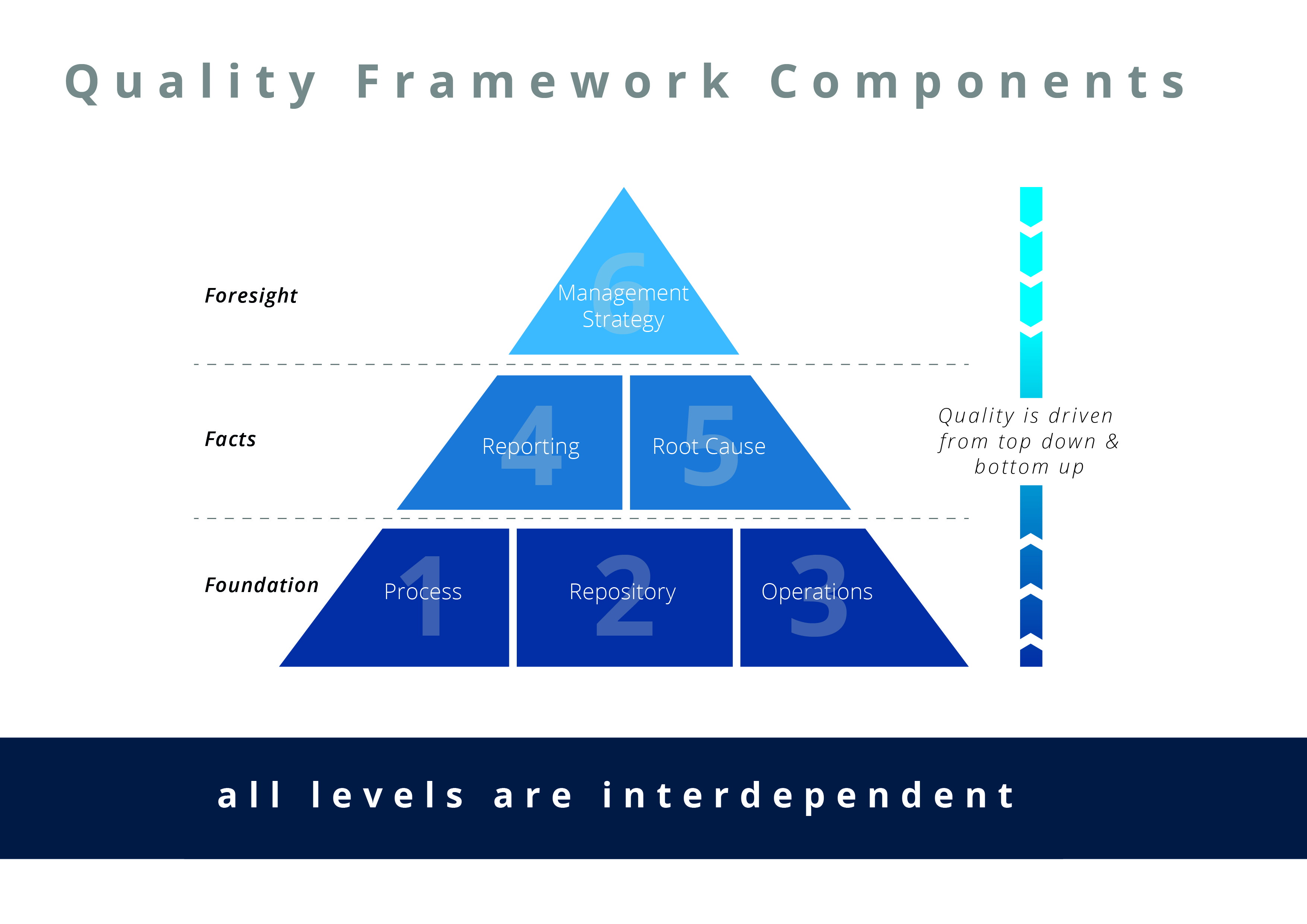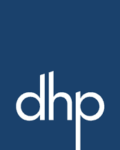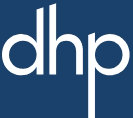In this post we're be talking about quality frameworks and how essential they are, not only to maintaining a successful operation, but also to consistently deliver exceptional service. We often find companies already have some quality components and activities in place. But when we ask them to explain their quality measures in more detail, they frequently struggle to articulate their methodology.
The Components of Quality
There are a number of essential requirements for an effective quality framework in an operational business. At dhp we have developed the quality framework into six key components. Illustrated by the pyramid below. Components consist of operations, repository, process, reporting and root cause for continuous improvement. At the top, is management strategy and communication. So ask yourself can you clearly explain the quality framework in your operation, and how it’s used?

As the graphic illustrates, a quality framework has a clear structure with operations, repository and process providing the foundation a business needs to effectively utilise its reporting and drive continuous improvement activity. Each component has associated activities with clearly defined inten-tions and deliverables to ensure the operation integrates effectively.
The start of the quality journey
One of most important documents to create is the quality philosophy. This document sets out:
- What quality means for the customer
- What’s our intention
- What are we trying to achieve
- How quality practically works and why you “do” quality.
- What quality means in our organisation
- One language – what is the terminology that sits behind quality
Creating your quality philosophy is a critically important step towards getting staff and managers working towards a common goal. We typically co-create a quality philosophy with every client we work with. Whilst the core components of quality remain the same, each philosophy document is tailored to the client’s specific needs. The final document becomes their branded handbook in language their staff readily understand. Co-creation is essential as quality doesn’t just come from being imposed by an external specialist. The business must choose to implement, apply and maintain quality.
“Quality is the result of a carefully constructed cultural environment. It has to be the fabric of the organization, not part of the fabric.”

“Why should I care about quality?”
Organisations that operate without a quality framework risk inflicting real damage on their brand. You risk problems with 3rd-party relationships and shareholder dissatisfaction, and from a purely commercial point of view, you’ll quickly find issues around increased operating costs and reduced profitability, plus lots of regulator pressure and potentially challenges around stagnated growth.
Quality frameworks are intrinsic to business growth and profitability
In our experience, when the pressure is on and work volumes are high, quality is squeezed to the limit. With no quality framework in place, there’s little awareness when quality activity starts to decline. So it’s when you’re at your busiest, looking to be your most successful and touching the most customers, that the absence of a quality framework is most likely to trip you up. Your quality philosophy is the document that your operations stand by, live and breathe by. It’s the ‘go to’ place to strengthen your resolve and avoid costly scenarios such as letting quality standards drop or during busy periods cutting back on quality checks. If you don’t have quality frameworks in place and you are thinking about embarking on this , the first step is to move to a controlled environment with a consistent approach to quality right down to a granular level. This enables the identification and sub-sequent elimination of issues through meaningful reporting and effective decision-making. This helps your operations gain clarity and purpose around quality, and your quality philosophy will en-sure understanding across all your staff and managers. Once a business has a quality framework in place and it’s properly embedded, staff become able to run that framework themselves, acquiring the ability to drive greater continuous improvement.The chief output of quality is knowing what is and isn’t working right now. There’s much greater transparency around what you need to act upon in order to improve and achieve operational excellence.
Below are the key components of a quality framework. If you believe you have a framework in place, you will be able to answer all of these questions with relative ease. If you’re struggling to answer any of the questions, get in touch with us? We’re happy to talk with you and help you to gain clarity on quality.
“Quality is everyone’s responsibility.”

Process
Do you have a structured process in place with clear procedures and a defined quality philosophy? Have you defined the skills and competence levels needed to ensure you deliver quality consistently?
Repository
Do you have a clear data structure? Do have internal standards and definitions? Do you have clear user guides? Do you have consistent and comprehensive data entry?
Operations
Do you have minimum basic standards in your operation? Do you have set targets? Do you have performance management and tight controls in place to eliminate errors and maintain focus? Are your teams working closely together? In a consistent manner?
Reporting
Are you able to generate meaningful operations reports? Can you identify trending is-sues to identify and prioritise problems before they escalate?
Root Cause
Do you have a defined method to analyse and identify issues? Do you have a defined action planning and implementation process to eliminate issues once identified? Are you reducing errors and continuously improving?
Management strategy
Do you have standardised measurements and KPI’s in place? Are you able to make effective decisions based on facts from reports? Are you focused on proactively manag-ing risk and improving performance? Do your managers take ownership of opportunities and chal-lenges, and take effective action? Where is quality on your road map?



